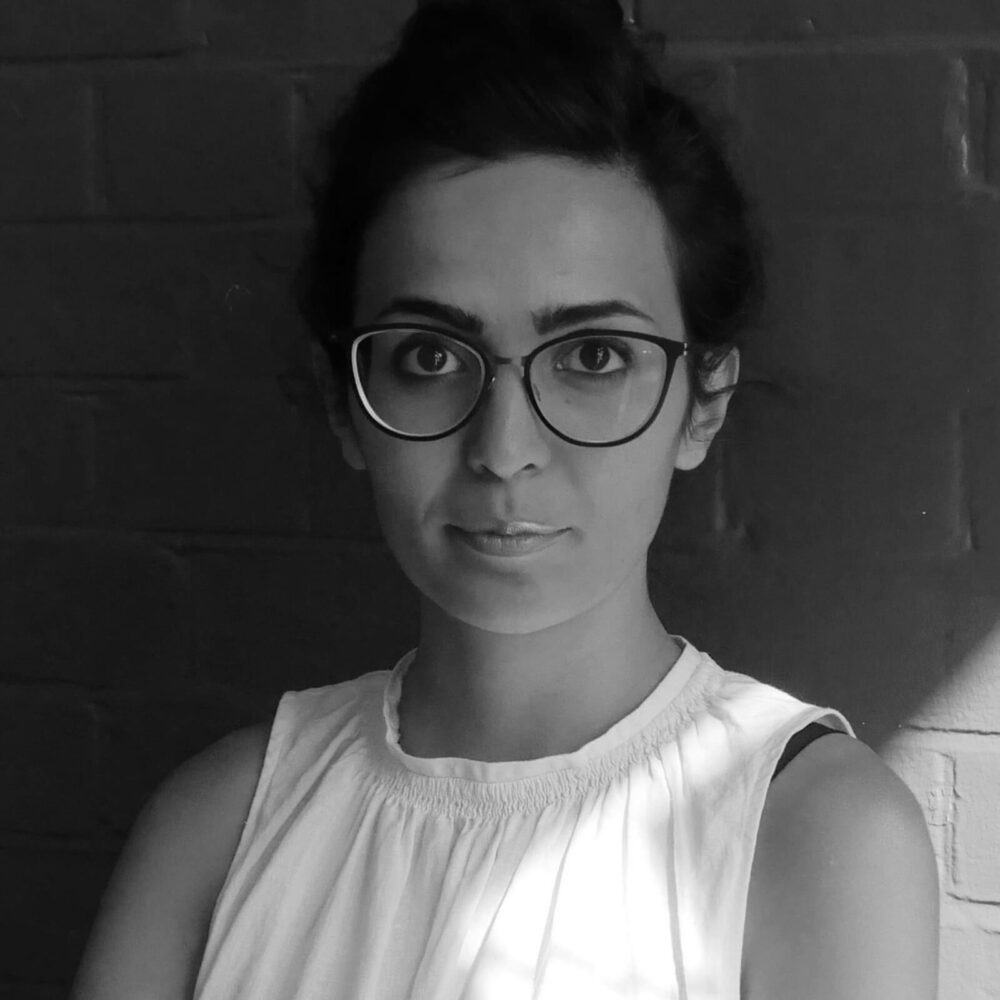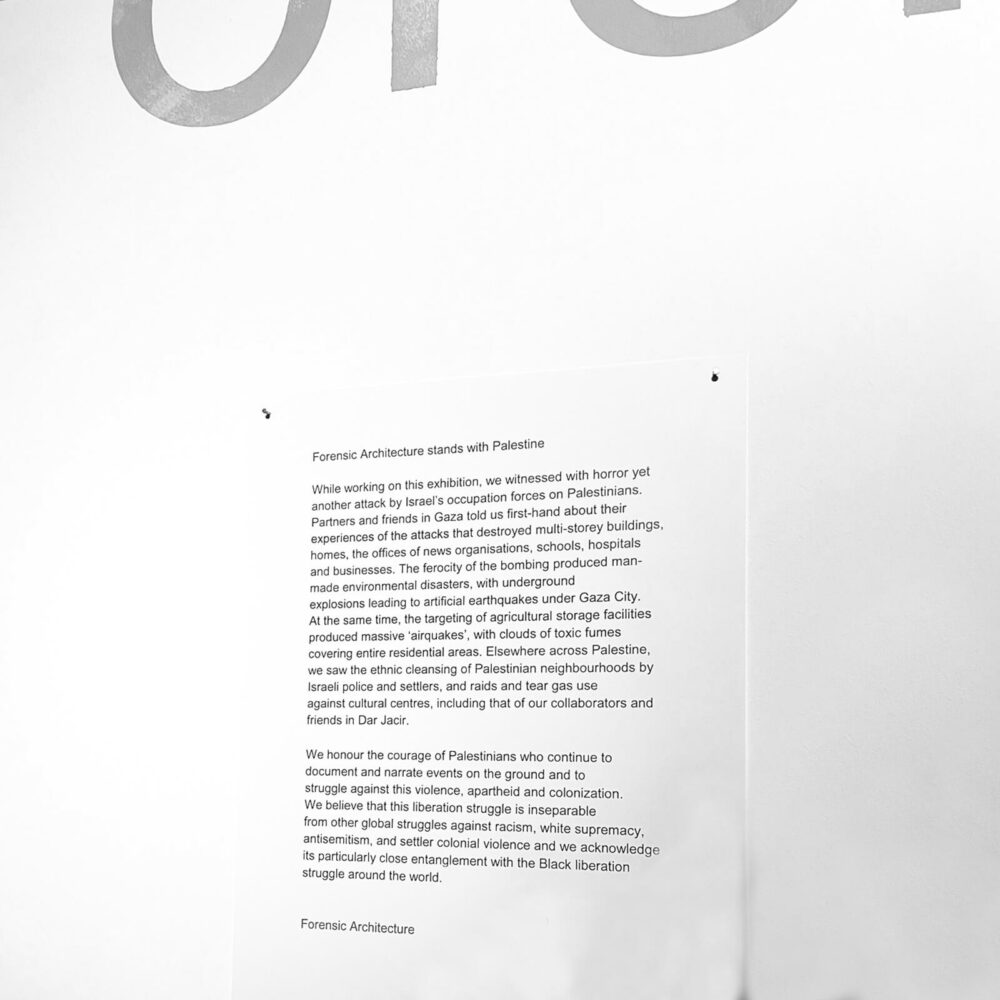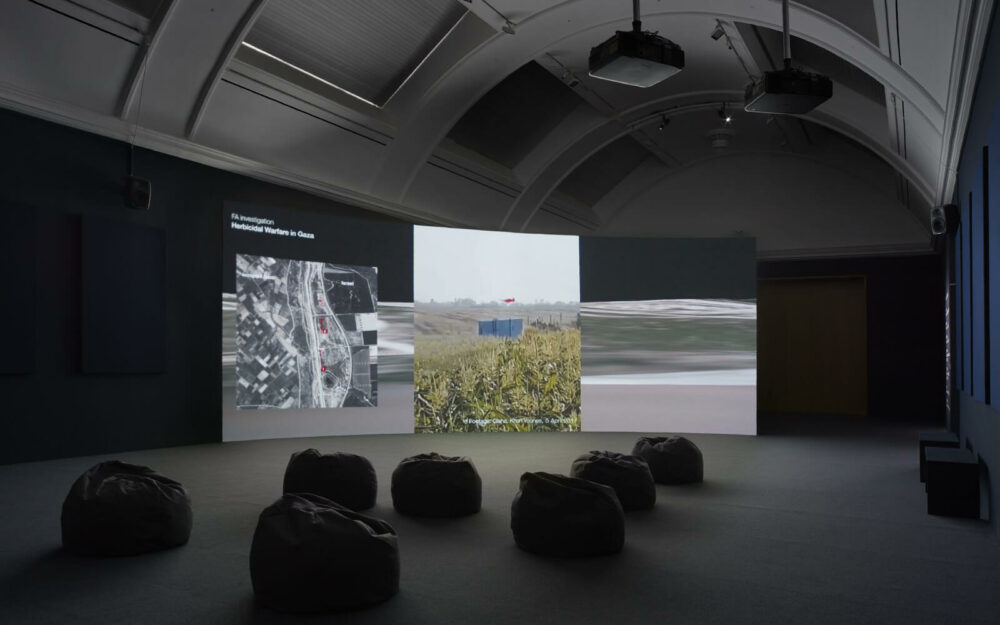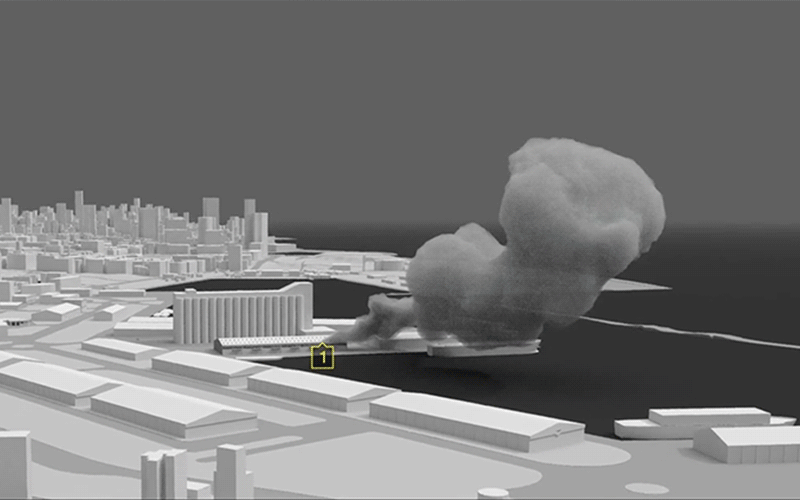← Explore
The MUTEK Recorder
Episode 03: Samaneh Moafi
Speakers:
Claire L. Evans
Samaneh Moafi

Profile:
Samaneh Moafi
Samaneh Moafi is a Senior Researcher at Forensic Architecture, a London-based research agency investigating human rights violations and violence committed by states, police forces, militaries, and corporations. As head of the group’s Centre for Contemporary Nature, she develops “new evidentiary techniques for environmental violence,” including analyses of environmental racism in Louisiana (2021) and the destruction of agricultural plots at the edge of the Gaza Strip (2014-).
Soundbite:
“Forensic Architecture does counter-forensics. We use publicly available images, videos, data sets, and other sources of information to deconstruct state narratives.”
Samaneh Moafi, on Forensic Architecture’s research methodology
Soundbite:
“Cloud Studies is a reading across a series of our investigations of toxic clouds, from Palestine to Beirut, London to Indonesia and the US–Mexico border. We breathe carcinogens, the cloud of tear gas forces protestors off the street, and the smoke of the forest fires is lingering on our horizons.”
Samaneh Moafi, on ‘the cloud’ as a figure, a subject of investigation, and a trace of violence
Project:
Commissioned for the Manchester International Festival and currently on view at The Whitworth art gallery, “Cloud Studies” is an exhibition that builds on several of Forensic Architecture’s research projects that “explore and expose how power reshapes the very air we breathe”—from Palestine to Beirut, London to Indonesia and the US–Mexico border. “Tear gas clouds spread poison where we gather, bomb clouds vaporize buildings, chemical weapons suffocate entire neighbourhoods and air pollution targets the marginalized,” the group states. “Our air is weaponized. Our clouds are toxic.” Mixing science, art, journalism, and protest, the group gathered historical maps, pollution data, 3D models and footage from various sources, including social media, to take stock of ‘the gaseous’ as a site of violence and clouds as “the epitome of transformation.” The Whitworth show expands on an earlier iteration produced for “Critical Zones: Observatories for earthly politics” at ZKM Centre for Art and Media in Karlsruhe in 2020 and includes the first phase of a major new investigation on environmental racism along the banks of the Mississippi in Louisiana. “Here, majority-Black communities whose ancestors were enslaved on these grounds breathe the most toxic air in the US—leading to the region’s nickname, ‘Cancer Alley.‘”
Soundbite:
“Clouds dissipate into the atmosphere, so how can we define and bring accountability for them? We need to start developing new evidentiary techniques around the formation of clouds.”
Samaneh Moafi, on the challenge of documenting the ephemeral

Note:
Earlier this month, Forensic Architecture temporarily closed “Cloud Studies” in protest, after The Whitworth art gallery caved to pressure by the UK Lawyers for Israel (UKLFI)—the same group that contested Forensic Architecture’s Turner Prize nomination—to remove a statement in support of Palestine. After the show reopened with the statement reinstated, Forensic Architecture penned a Guardian op-ed noting “galleries increasingly look to host political art, institutions and publics alike should not be surprised when political art is, well, political.”
Soundbite:
“We constructed this CGI model of the Beirut port explosion from images and videos that were posted online. Our model is a poly-perspectival one that brings together different situated testimonials of the violence.”
Samaneh Moafi, unpacking the group’s investigation of the Beirut port explosion that occured summer 2020, killing more than two hundred people, wounding thousands, and destroying large parts of the city
Soundbite:
“What is the role of architecture then, in bringing together all these different records?”
Samaneh Moafi, asking how the ‘architectural toolkit’ of representational techniques can be used to bear witness and consolidate individual accounts


